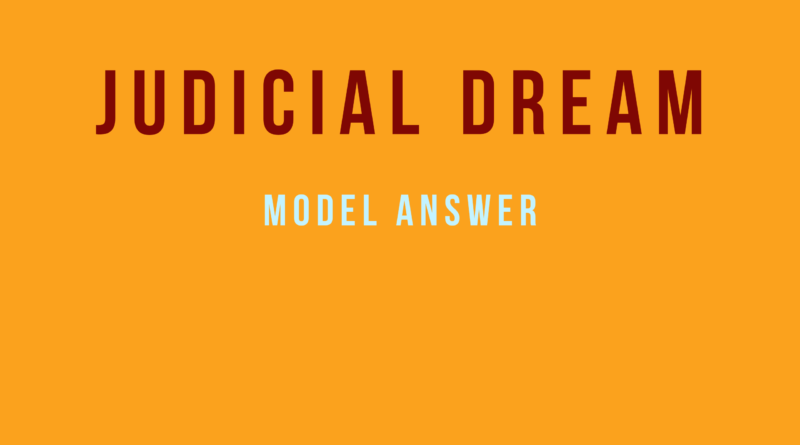WILL
Define the term “Will” or “Wasiyat” and discuss the main essentials of Will under Muslim Religion.
“Will” or “Wasiyat” is one of the main instrument in Muslim Religion because it gives power to the owner of property to transfer his property after his death. Will is an instrument through which the owner of the property declares that his property will be given to a particular person after his death. According to Tyabji, “Will means the legal declaration of the intentions of a Muslim with respect to his property which he desires to be carried into effect after his death.” If a person bequeaths his property through will then the property is given to the particular person only after the death of the person who has made the will i.e. testator.
The main purpose behind the introduction of concept of will in Muslim religion is to maintain those relatives who have no right to inherit property according to the law of inheritance. If a particular person has no right to inherit property then to maintain that person, testator can transfer the property to him through will.
As stated above, will is one of the main instrument in Muslim Religion, that is why, a Muslim has to fulfill certain conditions which have been prescribed by Muslim law to make a valid will.
According to Muslim Law, testator must be competent to make a valid will. It means that he must be a Muslim and of sound mind and he must be a major and in case of Wasiyat, a person is considered major only if he has attained the age of 18 years. So, according to Muslim law, a minor and lunatic can not make a valid will.
Moreover, according to Muslim law, the person to whom property has been given must be competent to take the property and he can get the property only after the death of the testator.
According to Muslim law, the property which has been transferred through will must be capable of being transferred and it must be in existence at the time of testator’s death and it is essential that the testator must be the owner of that particular property. If the testator is not the owner of property, then he cannot bequeath that property through will.
According to Muslim law, a person has power to dispose of his property through will but his power is limited because he cannot bequeath more than one third share of his property. According to Muslim law, a person can bequeath only one third share of his property. If he bequeath all this property to his heir without the consent of other heirs then according to Sunni law, that will is considered invalid but there is no difference between heirs and non- heirs under Shia law and a person can bequeath one third of his property to any heir without the consent of other heirs.
Moreover, if a person bequeath more than one third share of property then if all the heirs give consent after the death of testator then only that will be considered valid will but under Shia law, consent may be given either before or after the death of testator.



